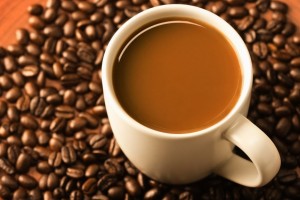Staff Writer for Wake Up World
Fizzy drinks and fruit juices are marketed as everyday indulgences, and coffee is the go-to beverage for many; new research is shedding light on the potential health risks associated with these popular drinks. A global study, co-led by the University of Galway and McMaster University in Canada, has found that frequent consumption of fizzy or fruit drinks and high coffee intake is linked to a significantly increased risk of stroke.
Fizzy Drinks and Fruit Juices: A Hidden Risk?
Fizzy drinks and fruit juices are often associated with convenience, flavor, and energy, but their hidden dangers may outweigh the short-term pleasure they bring. According to the study, consuming these beverages is linked with a 22% increased risk of stroke, particularly for those who drink two or more servings per day. The study was part of the extensive INTERSTROKE research project, which involved nearly 27,000 participants across 27 countries.
Artificial Sweeteners and Sugar: The Culprits?
One of the key takeaways from the research is that fizzy drinks, whether sweetened with sugar or artificially sweetened like “diet” or “zero sugar” sodas, carry similar health risks. Professor Andrew Smyth, the lead researcher on the study, emphasized:
Our research shows that the chance of stroke increases the more often someone consumes fizzy drinks.
Even fruit juice, often seen as a healthier option, is not without risk. Many juices marketed as “natural” contain added sugars and preservatives, which contribute to an increased stroke risk. Specifically, fruit juice drinks were linked to a staggering 37% increase in the chance of stroke due to bleeding in the brain (intracranial hemorrhage). This risk was most pronounced in women and tripled with the consumption of two fruit juice drinks per day.
Freshly squeezed fruit juices are most likely to bring benefits, but fruit drinks made from concentrates, with lots of added sugars and preservatives, may be harmful.
The Safer Alternative: Water
On the flip side, the study found that those who drank more than seven cups of water per day had a reduced risk of stroke caused by blood clots. This highlights the importance of staying hydrated with water, a natural and safe option that supports overall health.
High Coffee Consumption and Stroke Risk
The research brings some sobering news for coffee lovers. While moderate coffee consumption may have benefits, drinking more than four cups of coffee per day is linked to a 37% increased risk of stroke. However, the risk was not associated with lower intakes, suggesting that moderation is key.
Tea: A Healthier Alternative?
Tea drinkers, on the other hand, may have a reason to celebrate. The research showed that drinking 3-4 cups of tea daily, especially black tea (such as Breakfast or Earl Grey teas), was linked with a 29% lower chance of stroke. Similarly, green tea also showed beneficial effects, with a 27% lower stroke risk.
Interestingly, the study found that adding milk to tea may diminish its protective effects. The antioxidants present in tea, which are thought to reduce stroke risk, may be blocked by the milk, negating the benefits.
The Importance of Healthy Beverage Choices
These findings underscore the significant impact our beverage choices can have on our health. As Professor Martin O’Donnell, another lead researcher on the study, noted:
Our stroke risk can also be lowered through healthy lifestyle choices in diet and physical activity. The current study adds further information on what constitutes healthy choices on daily intake of beverages.
Making conscious choices, like reducing or eliminating fizzy drinks and fruit juices and opting for water or tea, can profoundly affect stroke risk. The research suggests that even small daily decisions can make a big difference in long-term health.
Rethink Your Drink
Your beverage choices play a significant role in your long-term health, particularly regarding stroke risk. While fizzy drinks, fruit juices, and excessive coffee may be part of your daily routine, research shows they can contribute to an increased risk of stroke. The good news is that small, practical changes can make a big difference in protecting your health.
Practical Tips for Healthier Beverage Choices
- Swap Fizzy Drinks for Water: Replace sugary sodas and artificially sweetened drinks with water. Start small by replacing one fizzy drink daily with a glass of water, and gradually increase your water intake.
- Limit Fruit Juices: Choose whole fruits over fruit juices whenever possible. If you drink juice, opt for freshly squeezed varieties without added sugars, and limit your intake to one small glass per day.
- Moderate Your Coffee Intake: If you’re a coffee lover, aim to keep your consumption to fewer than four cups per day. Consider switching to tea for a portion of your daily caffeine fix.
- Embrace Tea (Without Milk): Incorporate 3-4 cups of black or green tea into your routine, and skip the milk to maximize its stroke-preventing benefits. Herbal teas can also offer a refreshing, caffeine-free alternative.
- Stay Hydrated: Aim to drink at least 7-8 cups of water each day to maintain proper hydration and lower your risk of stroke.
Rethinking your drink choices and making simple, mindful changes can reduce your stroke risk and improve your overall health. Remember, even small adjustments to your daily habits can bring big benefits for your well-being.
Journal Reference:
Carbonated Beverage, Fruit Drink, and Water Consumption and Risk of Acute Stroke: the INTERSTROKE Case-Control Study. Journal of Stroke, 2024; DOI: 10.5853/jos.2024.01543
About the author:
John Patterson is an avid writer and researcher who delves into the latest scientific research. With an insatiable curiosity, he translates complex concepts into accessible narratives, allowing readers to embark on a journey of discovery. John bridges the gap between experts and the public through his work, igniting curiosity and inspiring meaningful conversations about scientific breakthroughs.
If You Could Align Your Work with Your Purpose—Would You?
Most people think they must choose between meaning and money—but what if you didn’t?
How open-minded would you be about a business that pays you well—without selling your soul to the system?
This isn’t just another online opportunity. It’s a plug-and-play system that lets you:
- Earn high-ticket commissions (57%+)—without the tech headaches
- Have your first $100K in sales closed for you by our expert team
- Build wealth in a way that aligns with your values, not against them
Most people will ignore this and stay stuck. But you? You’re not like most people!
Click here to watch the free masterclass now.
 If you’ve found value in our articles, we’d greatly appreciate your support by purchasing Mindful Meditation Techniques for Kids—A Practical Guide for Adults to Empower Kids with the Gift of Inner Peace and Resilience for Life.
If you’ve found value in our articles, we’d greatly appreciate your support by purchasing Mindful Meditation Techniques for Kids—A Practical Guide for Adults to Empower Kids with the Gift of Inner Peace and Resilience for Life.
In the spirit of mindfulness, we encourage you to choose the paperback version. Delve into its pages away from screen glare and notifications, allowing yourself to fully immerse in the transformative practices within. The physical book enriches the learning process and serves as a tangible commitment to mindfulness, easily shared among family and friends.
Over the past few years, Wake Up World has faced significant online censorship, impacting our financial ability to stay online. Instead of soliciting donations, we’re exploring win-win solutions with our readers to remain financially viable. Moving into book publishing, we hope to secure ongoing funds to continue our mission. With over 8,500 articles published in the past 13 years, we are committed to keeping our content free and accessible to everyone without resorting to a paywall.








